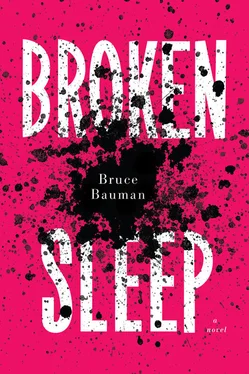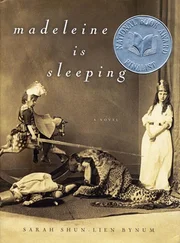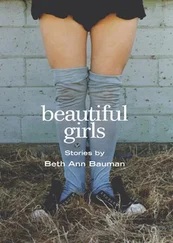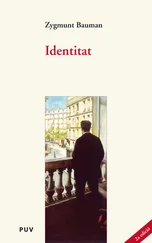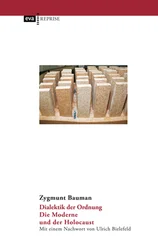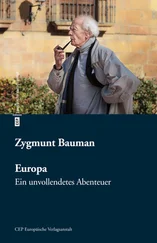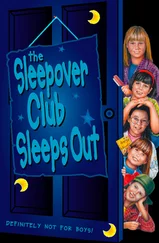No one says nuthin’ at breakfast. Absurda’s brothers drop by. I expect trouble. Nope. They want to drink with us. After four double schnapps a piece and a lotta mealy-mouthed ass kissing all around, they leave. I follow Alchemy to his room. He thinks I’m going to bust his balls about Heather. He starts packing his suitcase. “Get it over with. Say your worst.”
“You just gotta fuck every chick no matter who gets hurt, don’t you? Didn’t you do enough damage by screwing Absurda?”
He stops packing. “Nothing ever happened between us.”
“Bullshit. I heard her and you outside Madam Rosa’s that night.”
“I have no idea what you’re talking about.”
“That’s a motherfucking lie.”
“No, Ambitious, it’s not. Whatever you think happened, didn’t—” He seems so totally cool. I’m kinda half crying, half got the crazy blood-rushing shivers, and it just happens — I flatten my fist against his face. He stumbles back and lands on his ass. “You’re such a schmuck. I heard Absurda thanking you while you was twirling your half-nig—” I don’t finish.
“Well, I asked for your worst.” He don’t look pissed or surprised.
The Burning Bushel and a Peck
The tangible allergen of my ghost-child contaminated the Los Angeles air, and my psychic dyspepsia worsened. After years of beating myself up over the youthful betrayal by my body, followed by the acceptance of my body’s justifiable killing of our child, I lost my ability to sensate the truth. Was this person, who Teumer claimed to be our son, real or fake, dead or alive? Lively had left his phone number at Lily Fairmont’s gallery. I called. It rang into oblivion.
I couldn’t voice my unrelief of the child’s possible existence to Nathaniel or Alchemy. Both of them, anxious at my brittleness, assumed it came from Lively’s visit. Each time I tried to speak of it, the words choked me into silence.
Alchemy offered to buy us a home back east. We chose a two-story 1930s stone house on Cove Road on Shelter Island, a more pristine and isolated midpoint between the two forks at the end of the Sound. With his partners, Alchemy bought a three-story building on West 26th Street and Eleventh Avenue. They converted the basement and two floors into a women’s shelter and made the top floor an apartment for Nathaniel and me. Ruggles grudgingly agreed that I could forgo twenty-four-hour supervision for now. An aide came to check on me three times a week, and she and Nathaniel signed off on me taking my “normal” pills.
While he watched over me, an unforeseen bout of Gravity Disease infected Nathaniel, caused not by politics or my behavior but by the recognition of his dependence upon Alchemy’s generosity. Alchemy placed the deed to the Shelter Island house in Nathaniel’s name, and it highlighted his near pauperism. In thirty years of railing against the rampant selfishness of the wealthy, whenever Nathaniel had extra money he gave it away. He had donated the proceeds from the sale of the family home to a defense fund for death row inmates. Because they supplied a free house and other perks, Magnolia didn’t pay a grand sum, and he left before he could accumulate a pension. The advance he hoped to get for writing his memoir never materialized. He never made a dime when subletting his New York apartment, which we let go. Nathaniel supplemented our “Alchemy income” with adjunct teaching jobs at Stony Brook and Suffolk Community and occasional speaking gigs, but it was his self-esteem that needed supplementing.
He found invigoration in the rumblings of the antiglobalization movement, whose leaders idolized him. He spent weeks working the phones (and learning to use e-mail) preparing for the Seattle ’99 protests, which made him positively cheery.
Murray Gibbon and Marlene Passant opened the Gibbon-Passant gallery not five blocks from the apartment, and I scheduled a show. Inspired by the autumnal colors, I painted a series of Savant Red and Savant Blue abstracts on Plexiglas. I kept the edges sharp in honor of my past, and titled the exhibition The Beauty of My Weapons .
The Insatiables, at the peak of their popularity, were conquering Europe. When a radio station spread the rumor that Alchemy would fly in for the opening, Marlene and I decided to take advantage of my progeny’s fame. Not that there weren’t poseurs and frauds thirty years before, only now it seemed like New York openings were funless and filled with nonstop monkey chatter that gave me a case of external tinnitus. We sent out five thousand invites for the private Friday night opening, announcing a mystery guest. Hundreds arrived to find only blank walls and me, in my disguise as Dr. R. Mutter McGuffin, dean of the Dept. of the Theoretical Arts, behind a desk, selling MFA and BFA diplomas in the Myth of Fine Arts and Bachelor of False Advertising for $9.99. Some people got really upset. Most took it with good humor and enjoyed the free wine and beer. I sold them all. Gibbon snickered, “At least nobody died.”
The “real” opening happened the next Saturday. The show garnered my first review in New York’s self-anointed paper of record. A rave. The beginning of my art world redemption. You disappear for a while, live long enough, have a celebrity son, and a new generation of “critics” replaces the former slanderers. Every painting sold within a week.
Two days after the Bush coup of 2000, Nathaniel and I took the jitney to the city so he could help organize some protests. The country’s passivity enraged him. Mother Jones magazine asked him for a piece. He tried to write from the perspective of an aging Bohemian Scofflaw, in hopes that would spur him to write a follow-up to Tag —and perhaps make some money.
The afternoon he left for the post office to mail the piece, I took the subway to meet a displeased Gibbon and Passant at the Odeon. I’d sold a Savant Red painting for $100 to a broke young couple. In the middle of Gibbon’s tongue-lashing, my cell rang. Nathaniel had collapsed and an ambulance sped him to St. Vincent’s Hospital. I began to get hysterical — Marlene grabbed my arm and led me outside. Gibbon followed. We hopped in a taxi. I explained to Marlene that the ER doctor at St. Vincent’s had scarred my face with his ineptitude and I’d vowed never to set foot there again. This time the ER doctor, Neil Downs, who smelled like hot apple cider, competently assessed the problem, sent him for tests, and called in a neurologist; he’d suffered a stroke.
I sensated this was not Nathaniel’s time to leave me. I called Alchemy in Los Angeles. He was coming immediately. Xtine rushed over and stayed with me until midnight. I crawled into the empty bed in the semiprivate room and slept. After a few hours, the hospital’s spiritual Clorox odor awakened me. My brain feeling swollen, I left for a walk.
Winter, with its low smoky blue-gray clouds, like a silkscreen backlit by the city’s neon gleam, insinuated itself into my body and drew me to the seminary on 21st Street. The gardens were normally open to outsiders for only a few hours in the afternoon, but I’d made friends with the dormitory guards, who let me inside. I watched my breath as I meandered around the courtyard. I closed my eyes. I prayed to the sky for Nathaniel’s recovery. Suddenly, I felt blood dripping from my nose. I sat on a bench, tilted my head back, and patted it with the edges of my scarf. From my breath’s icy-hot vapors appeared an unfamiliar DNA ancestor.
— Shalom, my scion out of time. I am Margarita .
— Why have you never appeared before? Where is my Salome?
— I am Salome’s daughter. She sent me because I have a special message and mission for you .
Читать дальше
